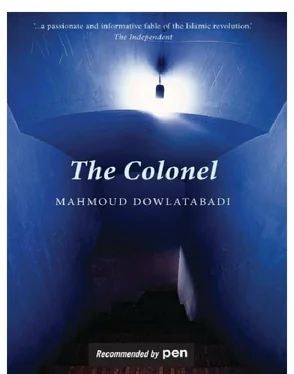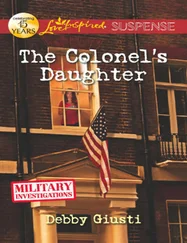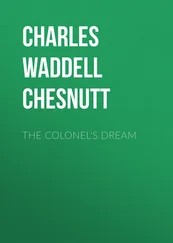
No, this man lost in his shabby raincoat, this gaunt, skinny man with long, wet hair wandering among the graves can’t be Amir… Why am I so obsessed with this delusion? I need to get on with the job, and I’ve got a deadline. I mustn’t waste time on irrelevancies. Now, where’s the mortuary got to?
The mortuary was a bit over to the right from where the colonel was heading. Earlier, it had struck the colonel as a chamber of horrors, worse than the graveyard. The thought of entering it, especially at night, made his hair stand on end. One often heard of people wandering into a mortuary in the middle of the night and being literally frightened to death.
How come, then, that I now feel not the slightest twinge of fear? It was more likely, the colonel thought, that the two young men he had left behind would be far more unnerved than he was by being surrounded by dead bodies all that time. It is only professional body washers who have no fear of bodies and the darkness of the mortuary. The minds of these young men had been unsettled by the daily toll of blood, bodies and slaughter on the streets. The fact was, the colonel thought, that however much the youth of today had got used to blood and guts in the street, they still had a long way to go before they attained the detachment of a real body washer. The young still had white teeth. Their teeth had not gone yellow, wolf-like, grotesque and misshapen, like I imagine old fashioned body washers’ teeth get from a lifetime of bone cracking . Even wolves would be frightened by darkness, corpses and mortuaries, though perhaps they would not show it.
He could hear them now. As he got closer, he could see them walking up and down. Without taking his eyes off the mortuary, he leaned against the wet trunk of a leafless tree to take another breather. All the while, he was watching the young policemen, their faces in the shadow, as they tramped nervously back and forth, shoulder to shoulder. They did not even appear to be talking to each other, just pacing incessantly this way and that, trying to kill time.
Maybe they’re frightened of the skinny corpse of my daughter, by the ghost of an innocent child. Or perhaps they’re angry at me for taking so long. That’s fair enough, it’s no job for them really. Instead of being given a proper job to do, they’ve been sent out on a rainy night to keep guard over my daughter’s dead body. What sort of job is that? All this hanging about has given them too much time to think about their lives.
Yet, judging by the anxious and aimless way they were roaming around, they were not much given to thoughtful reflection. They did not appear to be smokers, otherwise they could have found a sheltered corner under the mortuary eaves and, like most old prison warders, have had a cigarette or two to pass the night away.
I could really do with a smoke now, if only this wretched rain would let up. No, he had to go and finish the night’s work. He could light up after that, just as he had after Mohammad-Taqi’s funeral, when the cup of coffee and cheap Homa cigarette he had had when he got home had really hit the spot. It had tasted as wonderful as his very first cigarette. That day was the first time he had really noticed Amir’s squint, and the way his eyes stared at a point in the middle distance. And it was on that day that the thought had flashed across his mind: ‘My children… oh, how I wish I had never had you!’
Now I really must get going and put those lads’ minds at ease.
A short distance away, The Colonel was standing on a gravestone, which made him look a lot taller. His black field boots were dazzling, unsullied by the mud, rain and dirt of the graveyard. Thank goodness they can’t see him, otherwise his terrifying appearance would give them heart attacks on the spot. I must not look at The Colonel, or these young fellows are going to think that the old man is off his rocker. the colonel walked up to the policemen, propped his pick and shovel against the wall of the mortuary and wiped the sweat and rain off his face. He greeted the young men briefly and apologised to them for his lateness:
“I’m so sorry, gentlemen, but you can see what one has to cope with.”
Now I have got to make peace with Forouz.
the colonel’s wife was standing by the door of the mortuary awaiting his return, as if she had already heard that Qorbani would not allow Farzaneh to go and wash her sister, as if to say that it would be grossly unfair and offend her deeply if the colonel blocked her way and stopped her doing her job. She had come to lay out her daughter, but before starting she wanted to be sure that the colonel would not stand in her way. He certainly ought not to prevent his wife from doing this good deed; it would be very heavy-handed of him not to let Forouz wash her own daughter’s body. Such meanness, particularly in the presence of The Colonel, would seem impertinent, and on no account would I want any impertinence on my part to upset The Colonel . So, as if nothing had ever happened between them, he showed his wife into the mortuary.
Forouz’s face was shining like a moonbeam, her hair was all white and her lips were as white as the cotton shroud she was wearing. Only her eyes, caught in the light of a tallow lamp that stood on a plaster column in the mortuary, glowed red, like two bowls of blood. Apart from her red eyes, in her long white shroud she looked like a silken wing, floating gracefully over the earth. She did not speak or glance around. As at the most submissive moment of her life — this was indeed a rare event — she kept her head dutifully bowed and, walking in step with her husband, glided towards the slab where Parvaneh lay. Her demeanour was so calm and pure. She must want my blessing, that her soul might be purified. What a way to get her own back on me!

“I’ll kill her. I’ll kill her before I go off on this sordid posting!”
the colonel had risen from his chair, and Amir was staring at him in astonishment. He could not believe it of the colonel, of his father, that he could murder his mother and, what is more, announce his intention for all to hear. He might have wanted to give me a helping hand, but how… No, he couldn’t alter my decision. Nor could Amir help him, other than by standing aside and looking on as his father sorted his own mess out. I started crying again and I broke down. This might have given Amir some brief hope that the colonel would change his mind about murdering his mother but, to put a stop to any such hope , the colonel stood up, threw off his army cap, strode bare-headed out of the room, crossed the courtyard and went out of the front gate to stand in the rain and wait for his wife to return.

“You see how hard it is on a man, don’t you, gentlemen? Now I am at your service.”
He had given the bundled-up shroud to Forouz. Now he had to go and fetch the pick and shovel, which he had left at the bottom of the crumbling wall of the mortuary. When he got there, he started grumbling out loud:
“What kind of mortuary is this, anyway? It hasn’t even got electricity. This sort of town needs more and more of it, what with all the migrants, refugees, and war wounded, not to mention all the executions that are taking place, and all those young comrades on the run…”
The rain, lack of sleep and the long wait had knocked the stuffing out of the young policemen. Even so, one of them tried to cheer the colonel up by telling him that the city had plans for a brand-new mortuary to meet the needs of the community. It had been approved by the city councillors and had been put out to tender, and work had even started on it. The other policeman chipped in morosely, “Why did those bastards in the Shah’s day never think to build a decent mortuary anywhere outside of Tehran?”
Читать дальше















